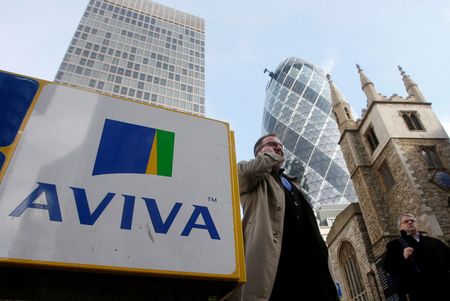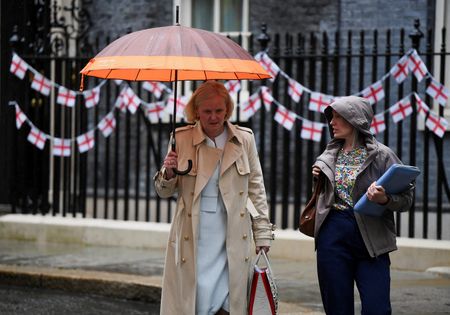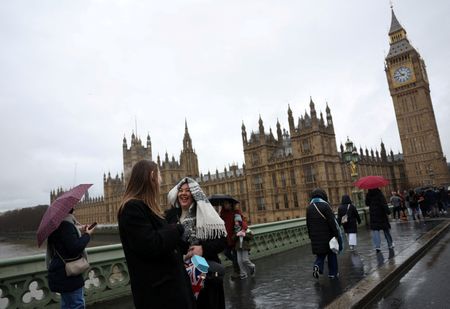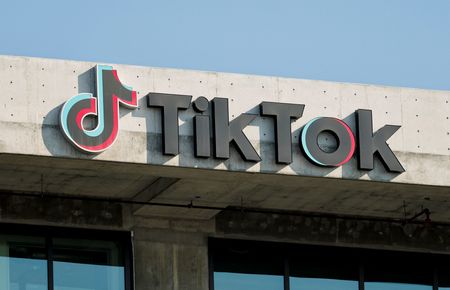By Sinead Cruise
LONDON (Reuters) -A sector-wide push into private assets should help millions of pension savers achieve higher returns and avoid old age poverty as long as the government doesn’t seek to dictate how providers invest that cash, Aviva CEO Amanda Blanc told Reuters.
Seventeen investment firms running trillions of pounds in insurance and pension assets pledged on Tuesday to pump up to 50 billion pounds ($66.38 billion) of additional investment into unlisted firms, property and infrastructure, as the government leans on private capital to fund public projects and boost growth.
The so-called Mansion House Accord aims to bolster pension fund returns and encourage UK savers to stop sitting on cash and put more money into higher-growth, productive domestic assets.
But there are fears the government could try to compel insurers to support politically sensitive projects or demand mandatory investment levels in riskier assets like venture capital (VC) against the best interests of pension investors.
“We think the red line is mandation. We do not believe that is a necessary strategy … and it is important those VC funds are invested with the interests of the individual pension savers in mind and the trustees have a fiduciary duty to do so,” Blanc said, after Aviva posted higher first-quarter general insurance premiums.
“These are asset classes which are very, very well known to insurance companies. We’ve got long histories of investing well and delivering really good returns in those segments.”
UK pensions minister Torsten Bell has said the accord with pension providers represented a voluntary commitment and there was “no mandation”.
He also rejected the idea that the government could face pressure to compensate schemes if returns disappointed.
VOLATILITY
BlackRock CEO Larry Fink earlier this week warned of sustained volatility in financial markets, and said investors were now hoarding tens of trillions of dollars in cash amid trade war worries and uncertainty over the U.S. economy.
Blanc echoed those concerns and called on savers to engage fully with their pension providers, the majority of which had little to fear from the recent ructions.
“We shouldn’t get confused about the market volatility that goes on in any particular period of time. We are, as insurers, long term investors. We are not forced sellers. And periods of volatility really do not impact that,” she said.
“What we know is that 12 and a half million people in the UK will not have enough money to retire if we carry on investing in the way that we do today,” Blanc said, citing official data from the Department of Work and Pensions.
According to the Pensions & Lifetime Savings Association, the current average annual pre-tax retirement income is around 21,000 pounds, comprising around 9,000 pounds in income from a private pension plus state pension of 11,500 pounds.
This compares to the PLSA recommended level for a moderate living standard of 31,300 pounds.
($1 = 0.7533 pounds)
(Reporting By Sinead Cruise, additional reporting by David Milliken; Editing by Kirsten Donovan)











